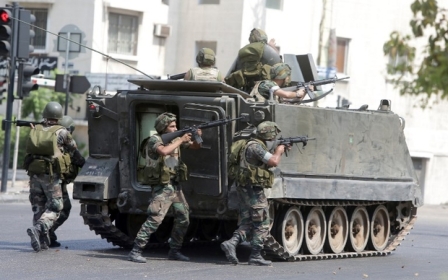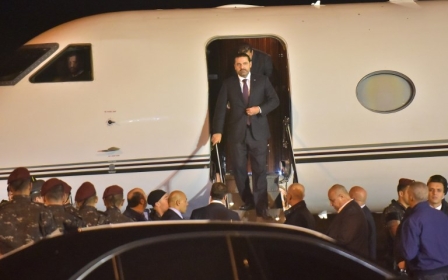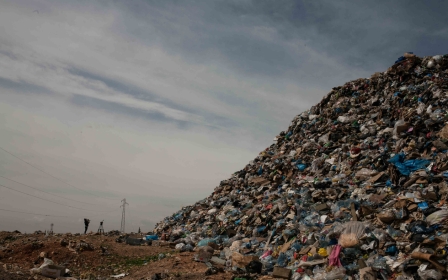Lebanon sets 6 May date for first legislative election since 2009
Lebanon set a date of next 6 May to hold its first legislative election in almost a decade, potentially transforming the politics of a country caught in a confrontation between Saudi Arabia and Iran.
Interior Minister Nohad Machnouk signed a decree setting the date on Friday, allowing the vote to go ahead. The election has been postponed three times since the last vote in 2009, with politicians citing security concerns, political crises and a dispute over the election law.
Prime Minister Saad al-Hariri's coalition government, which took office a year ago, agreed on the new election law in June, but setting the date was held up while officials debated technical details and registered Lebanese citizens abroad.
Lebanon's political landscape has shifted dramatically since the last election. Hariri's pro-Western, Saudi-backed political alliance has split. For the past year, he has led a power-sharing government that includes the Iran-backed movement Hezbollah, which is despised by his Saudi allies.
Key allies of Hariri have left the 14 March bloc, including Druze leader Walid Jumblatt. Meanwhile, President Michel Aoun, who was elected last year, has cemented a partnership with Hezbollah.
Hariri sparked a political crisis last month by announcing his resignation while in Riyadh and denouncing Hezbollah and Iran. He stayed abroad for two weeks before returning, and finally withdrew his resignation last week.
Lebanese politicians and Western diplomats had voiced concern that Hariri was pressured by the Saudis to resign as he was being held against his will in Riyadh.
Lebanon adopted a complex electoral system designed to maintain civil peace in a country where Sunnis, Shia, Christians and Druze have endured unrest and civil war since the country's independence in 1943.
The 128-seat parliament includes 64 Christians apportioned among seven denominations, and 64 Muslims, including an equal numbers of Sunnis and Shia. The country is divided into districts that each vote for multiple lawmakers according to religious quotas.
The president must be a Maronite Christian, the prime minister a Sunni Muslim and the parliament speaker a Shia Muslim, representing the three biggest groups in parliament.
Despite the relative calm and success in shielding the country from violence in neighbouring Syria, Lebanon is suffering from economic, environmental and political hardships.
The international community has repeatedly stressed the importance of Lebanon holding timely elections to restore confidence in its institutions and maintain stability.
Machnouk said Lebanese abroad would be able to vote on 22 and 28 April.
New MEE newsletter: Jerusalem Dispatch
Sign up to get the latest insights and analysis on Israel-Palestine, alongside Turkey Unpacked and other MEE newsletters
Middle East Eye delivers independent and unrivalled coverage and analysis of the Middle East, North Africa and beyond. To learn more about republishing this content and the associated fees, please fill out this form. More about MEE can be found here.




